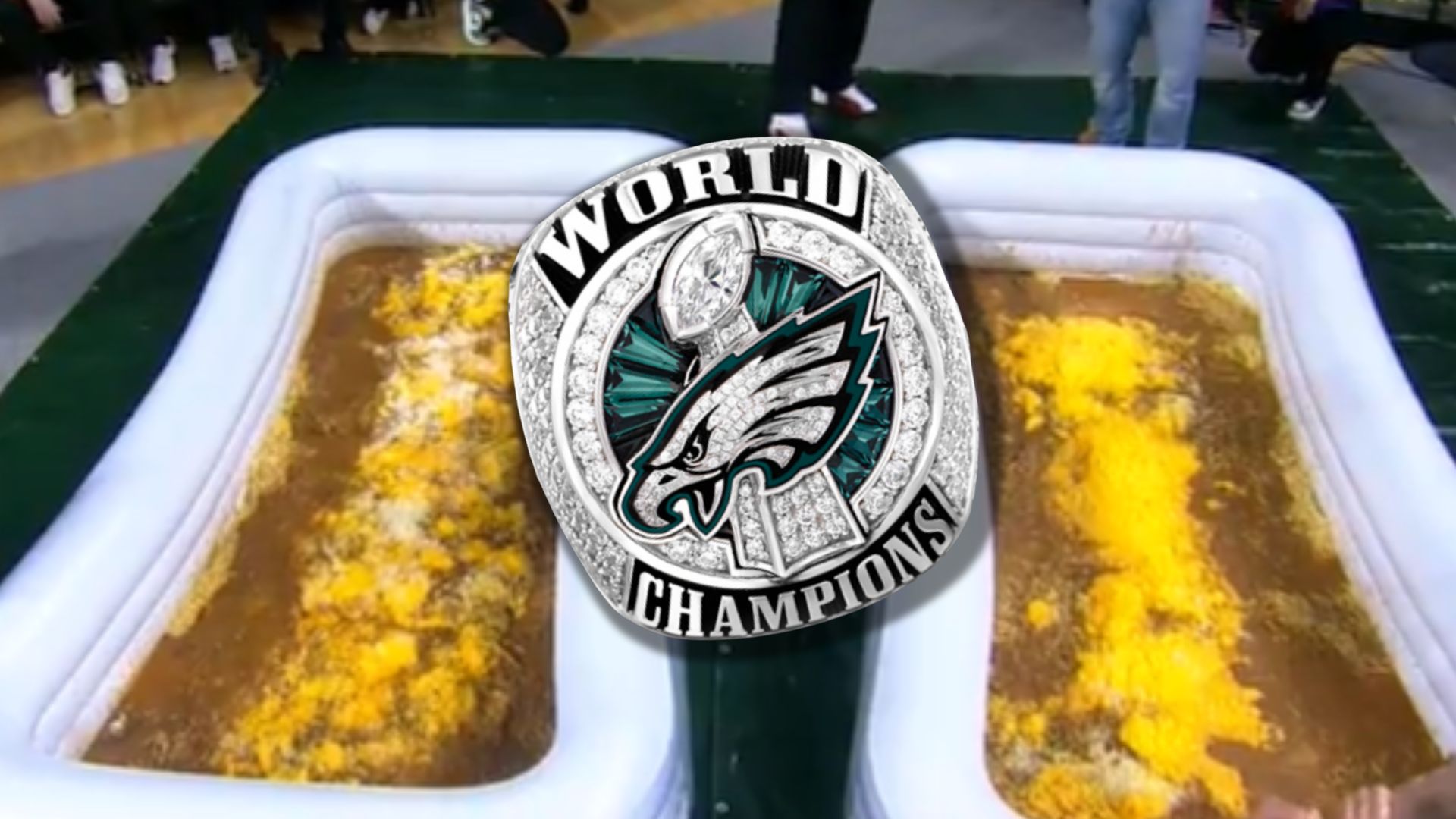Michael Vick returned to the site of his gruesome dogfighting crimes, looked at an empty dog bowl left behind in a dingy cage and wondered how he ever could have risked fame, freedom and fortune for “Bad Newz Kennels.”
“This is hard to imagine myself doing this years ago, man,” Vick said, cameras rolling.
Cameras rolling?
Vick’s visit to the property he once owned in Surry County, Va., where he trained pit bulls for vicious fights and helped drown or hang dogs that didn't do well, is a teaser of what's ahead in his docu-series “The Michael Vick Project.”
Vick candidly tells how he became entangled in a dogfighting ring that sent him to prison and temporarily halted his NFL career as part of a series that debuts next month on BET.
The reality of Vick should be on display in the 10-part series that will show Vick's a changed man after a tragic fall from stardom he says “was all my fault.”
“At times, it's hard to talk about it, but for the most part, if you talk about it and let it all out, it kind of helps put the demons to rest,” Vick told The Associated Press on Thursday.
Sports
In partnership with NBC Sports Philadelphia
Vick served an 18-month prison sentence for operating a dogfighting ring. He returned to the NFL this season as a backup QB and wildcat weapon for the Eagles.
The reality of Vick’s horrors, fall and redemption should be on display.
In the first episode, Vick openly discusses living a “double life” of running the operation at the same time he was making Pro Bowls and signing a 10-year, $130 million contract with the Atlanta Falcons. Vick explains in detail the childhood experiences he had with dogfighting and how the activity morphed from his NFL sideshow job to a bustling second career that spanned state lines.
“I really took to it,” Vick said on the show. “I was intrigued by what was going on. It kind of excited me and I gravitated to it.”
Vick told The AP that walking over the burial spots of some of the dogs killed as part of his dogfighting operation “cut me deeply” and was the moment when he “really realized all the wrong that I did.”
“I wanted to go out there and just totally put it all away and forget about it,” Vick said by phone. “I felt like once I did that, I'd be able to do that. For the most part, I did. Since I've been out there, it's eased a lot off my brain as far as thinking about it.”
Vick would never be able to completely forget the horrific acts he witnessed and committed, he said. Returning to Virginia made Vick deeply consider a question that still nags at his conscience: Why?
“Why sacrifice so many animals and put them in vulnerable positions to be harmed and injured?” he told The AP. “It was pointless.”
The first episode does offer a glimpse, however, at answering that question. Vick said he saw his first dogfight as a 7-year-old kid. Vick's brother, Marcus, tells the cameras that growing up “we never knew there was nothing wrong with it.”
Michael Vick said on Thursday that dogfighting was a part of black culture.
“When you grow up in the inner cities, when you grow up in the urban neighborhoods, that's pretty much what you get,” Vick said. “You don't have opportunities to do certain things at your own leisure. When you have down time, if you're not playing football, basketball or baseball, then you're looking for some activity to get into.”
Vick has learned the last few years to deal with his heinous crimes and their repercussions, he said.
“I had counseling sessions when I was about to be incarcerated,” he said Thursday. “It was therapeutic for me.”
Vick's mother, sister, and Virginia Tech coach Frank Beamer were among the people interviewed on the first episode. His fiancée, Kijafa Frank (a Philly native), says she pleaded with Vick to quit. Vick said when he was charged in 2007, he believed “money will get me out of this situation” and lawyers could make all the legal issues vanish.
Only months later, Vick surrendered to U.S. marshals.
“I cried all the way to the jail,” he said on BET.
Vick appeared at ease as he discussed how his dogfighting stable rapidly expanded and spiraled out of control. He wanted to end it, but never found the courage to say stop.
Vick now says he's a new man. Vick, the former No. 1 overall pick, said the show chronicles the real story of his rise to the top, his precipitous fall, and path toward redemption. Vick is shown playing catch with his son, and laughing with his two daughters in a scene that softens the image of him as a dog-killing monster.
He also softened that image through community outreach this past season. Vick worked with the Humane Society of the United States and gave speeches at schools and churches about how wrong he was to ever get involved with dogfighting -- especially with so much to lose.
Vick said he's turned his life around and wants to show people that he can change.
“It's still a work in progress each and every day and it's going to be that way the rest of my life,” he told The AP.
As for the future, that remains unknown. His football future is in limbo. He attempted only 13 passes and rushed 24 times in limited action with the Eagles season. The Eagles hold a $5.2 million option for next season and might not pick it up if Donovan McNabb and Kevin Kolb return. Vick, who said he started working out Wednesday, hasn't thought much about next season.
“I'm excited about everything,” Vick said. “Whether I'm in Philly or Tampa Bay, it wouldn't even matter.”



